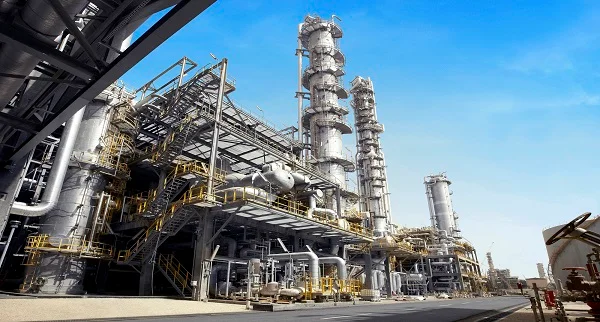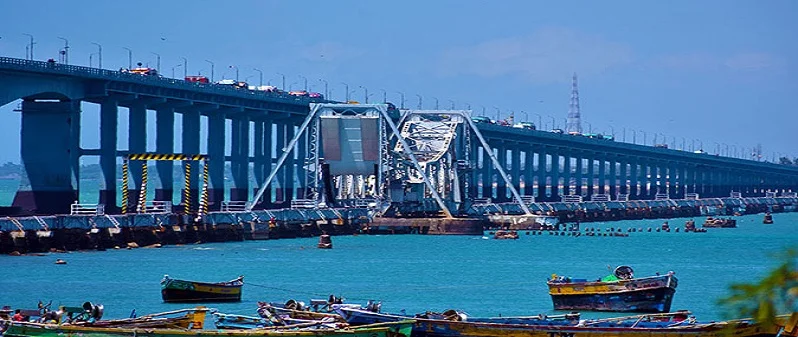WHAT IS TITANIUM ALLOYS? GRADES, APPLICATION AND PROPERTIES
WHAT IS TITANIUM ALLOYS?.
Titanium is referred to in the standard table of elements as a transition metal and is referred to as
Ti. Its resistance to pressure, heat, water, and salt, and its lightweight is making it the perfect metal for a range of applications. This includes joysticks, dental implants, aircraft, and ships. Titanium alloys maintain the same strength and resistance to oxidation but gain greater flexibility and versatility in combination with the steel.For many important high-tech applications.
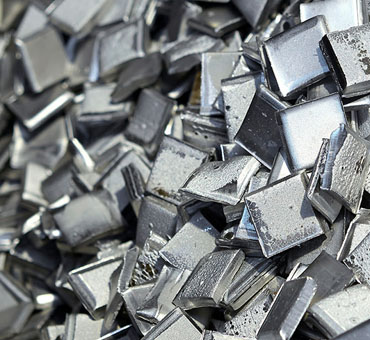
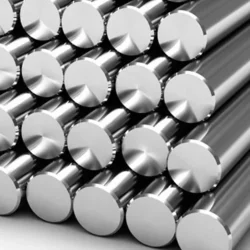
titanium alloys are used, such as rotating and stationary parts of the gas turbine engine and aircraft engine components.Oxygen is required for this barrier, as the name oxide implies. Titanium corrodes and rusts easily in vacuum-like conditions where oxygen is scarce. Nevertheless, it is rare and difficult to find and manufacture pure titanium that is completely resistant to corrosion and rust. Most bits and items of titanium are made of a titanium alloy that mixes different levels of titanium with different metals. These are vulnerable to rust and corrosion because they are not made of pure titanium. Many of the titanium alloys used in structural applications in the aerospace, energy and chemical industries consist of two-phase mixtures of phases α and β mixed in various morphologies and fractions of relative volume. Two-phase α + β alloys give a wide range of combinations of strength, durability and properties at high temperature up to ~600 ° C. The key factors which determine the functional characteristics of these alloys are solid-state phase transformations.
PROPERTIES OF TITANIUM ALLOYS
The characteristics are related to carbon, nitrogen, hydrogen and oxygen impurity content. Titanium iodide has a cleanliness of less than 0.1%, but has low strength and high plasticity. 99.5 per cent industrial pure titanium has the following characteristics: density p=4.5 g / cubic centimeter, melting point 1725 ° C, thermal conductivity a=15.24W/(m. K), stress strengthb=539MPa, elongation delta=25%, elastic module E=1.078* 105, hardness HB195, shrinkage= 25 per cent.Because of its unique strength and creep resistance, Commercially pure titanium is stable up to temperatures of about 300 ° C. Even at temperatures up to around 500 ° C, more complex titanium alloys are strong. The strength of fatigue (10 ^ 7 cycles) is approximately 50 percent of the stress, and welding causes no significant decline in the strength of fatigue.
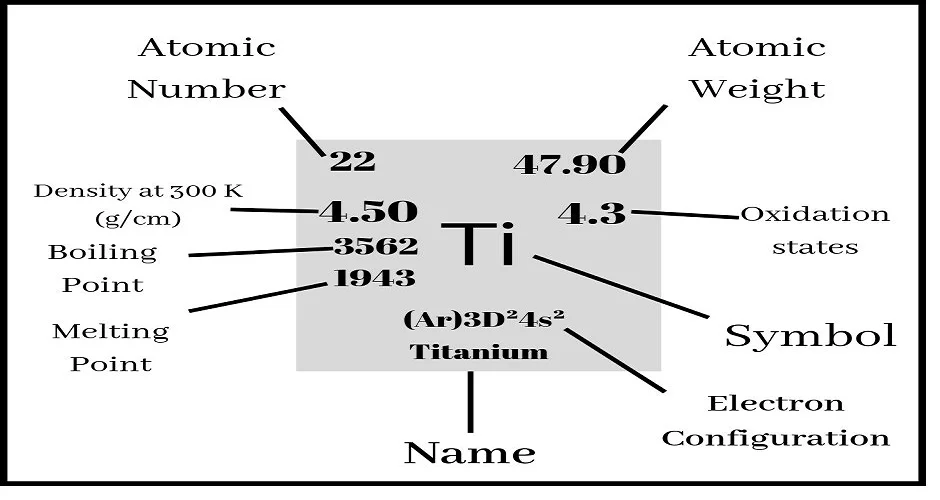
Properties Of Titanium Alloys
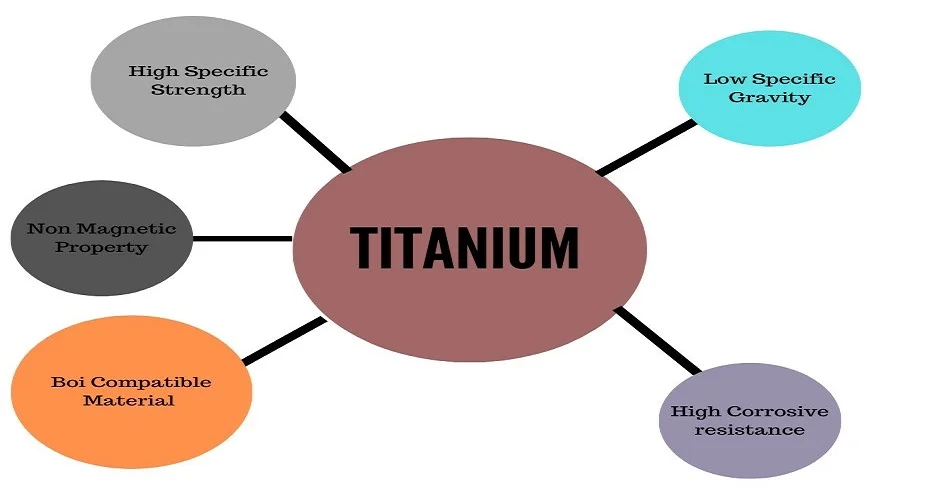
Titanium Grade
WHAT IS THE BEST GRADE TITANIUM?
Grades 1, 2, 3, and 4 of titanium are commercially pure (99% titanium minimum). That grade has minor chemical composition variations that affect the mechanical characteristics and capability of the design. The resistance to corrosion in all four levels is identical. Titanium Grade 2 is the preferred alloy for most industrial applications with good flexibility and corrosion resistance between four commercially pure (C.P.) grades of titanium. Grade 3 is least used in commercially pure titanium but is not less valuable. Grade 3 is stronger and less formable than grades 1 and 2, but has higher mechanical components than its predecessors. Grade 3 has a ductile character.
Grade 2 provides excellent seawater resistance and a marine corrosion atmosphere. The resistance to oxidation of four commercially pure is close. Grades, but with different oxygen and iron contents, mechanical properties vary. Grade 2 titanium is resistant to wet chlorides, metal chloride, chlorite and hypochlorite, nitric and chromic acids, organic acid, and many other industrial gaseous applications.
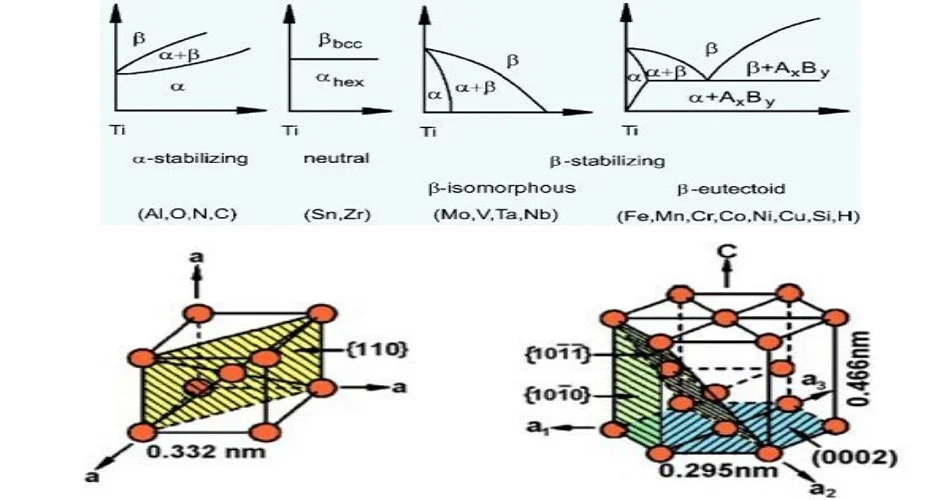
Alloy Effects on Ti Alloys
CHEMICAL COMPONENTS OF EACH GRADE :

MECHANICAL CHARACTERISTICS OF EACH GRADE :

APPLICATION OF TITANIUM ALLOYS :
Titanium alloys have high strength, low density, excellent mechanical properties, heavy durability, and resistance to corrosion. Titanium alloy is also weak in manufacturing and hard to cut. Impurities like hydrogen, oxygen, nitrogen, and carbon can be easily absorbed in warm work. Wear resistance is also low, and the production process is complicated. In 1948, automated titanium production began. The titanium industry is growing with the growth.
SHIPPING FIELD :
Boats and other appliances have long been immersed in water so that the components need to be resistant to corrosion, durable, and long-lasting. Thanks to their full strength scope, unique physical properties, excellent mechanical performance, and resistance to corrosion and damage, titanium alloys are widely used in vessels. On pumps, filters, tubing, fire extinguishing devices, boats, and other equipment of Russian ships, Titanium alloys are used.
AEROSPACE APPLICATIONS :
In fuselage, engine, and rocket parts, titanium is an essential “space material.” When designing high-performance aircraft, such as ASX-31, X-30, the use of titanium alloy materials has produced remarkable results. The M coefficient has risen by approximately three, while the aircraft’s overall quality is down by 80%. Russia provides titanium alloy sheets and other raw materials in the manufacturing of aviation equipment.
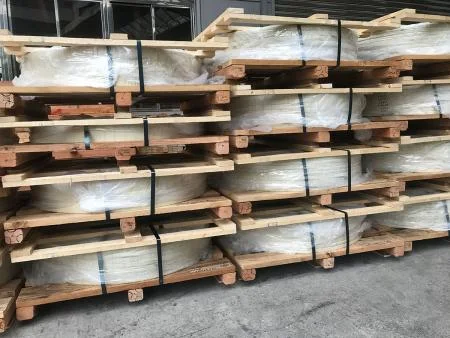
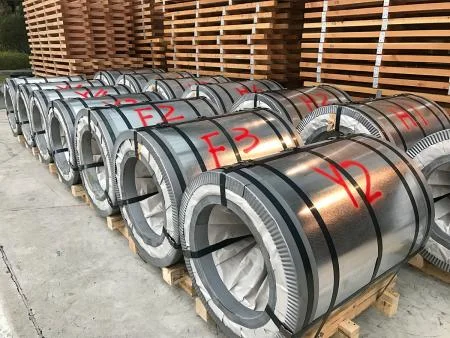
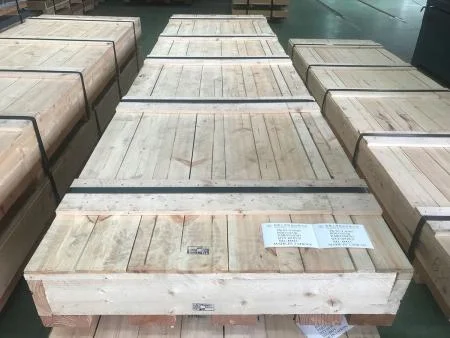
PACKING
We DUPLEX STEEL & ENGINEERING Ensure the best quality of Packing, because its play important role especially in a case of international shipments in which consignment pass through various channels to reach the ultimate destination, so we put extraordinary concern regarding packaging.
We pack our goods in numerous ways based on the products. We pack our products in multiple ways, such as:–
- Boxes and Crates
- Shrink-wrapped
- Carton boxes
- Wooden pallets
- Wooden boxes
- Wooden crates

